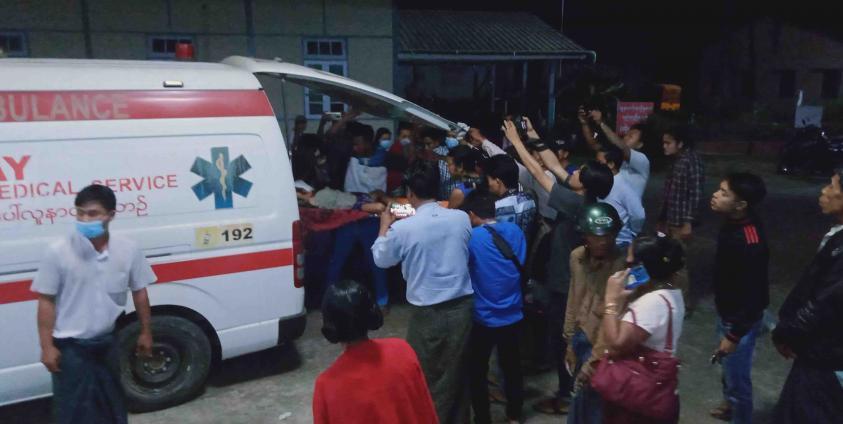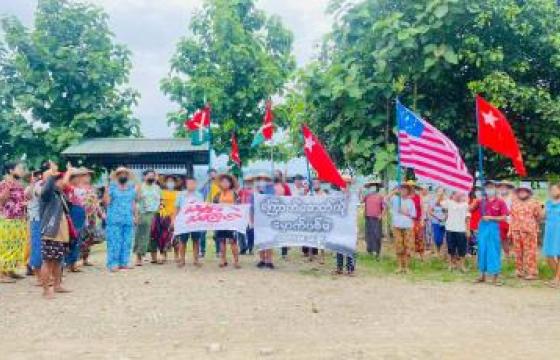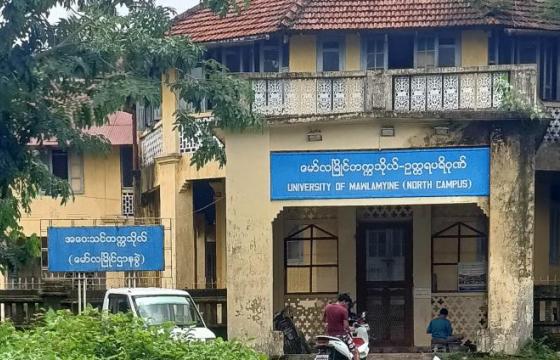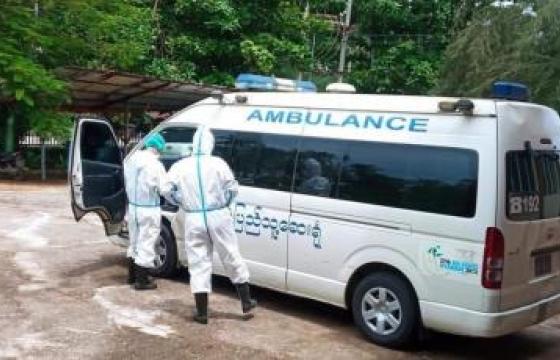Local people and mine experts complain that the mine clearance and the removal of all explosive remnants of war (ERW) in Arakan State is ineffective.
Ko Zaw Zaw Tun, Secretary of the Rakhine Ethnics Congress (REC) who provides mine risk education said: “Although the army has been carrying out mine clearance works for around five months, there are still many deaths occurring due to the exploding mines and remnants of war. Mine clearance operations are not effective.”
“As far as I know, both armed groups are clearing the mines they have planted. But there are the areas that are still off-limits where both armies are still deploying mines according to their military strategy. Both sides cannot carry out mine clearances in those places. In addition, they don’t know exactly where mines were planted. That’s why mine explosions continue,” he added.
The army did not clear mines despite the demands for the clearance of mines and remnants of war by the heads from some villages, he continued.
Daw Hla Kywat Khin from the Funeral Services Association in Buthidaung Township said: “Mine clearance operation is not included in Buthidaung Township. A local died on the spot and one was injured three months ago due to mine explosion in Buthidaung. Animals and cows die due to frequent mine explosions. I heard the news about the clearance of mines. I would like to appeal to officials to do really carry out mine clearance more systematically and earnestness. I don’t want Buthidaung to be left out.”
It has been around six months that fighting has stopped between the Arakan Army (AA) and the army in Arakan State. Since December 2020, the army carried out the clearance of mines and remnants of war along Yangon-Sittwe road and Yathaedaung-Angumaw road in Arakan State.
Former Arakan State Minister for Border Affairs and Security Col Min Than said the army was ready to clear mines if some villages demanded it. Due to the mine and remnants of war in Arakan State, there were 45 deaths and 91 injuries, according to the REC.







